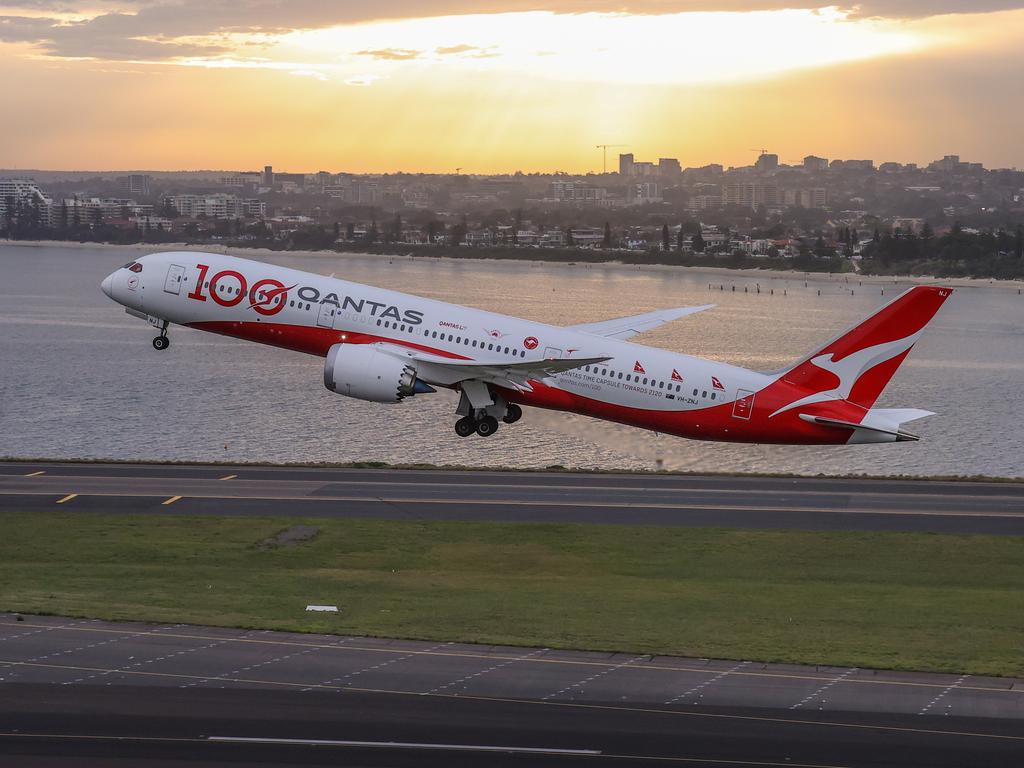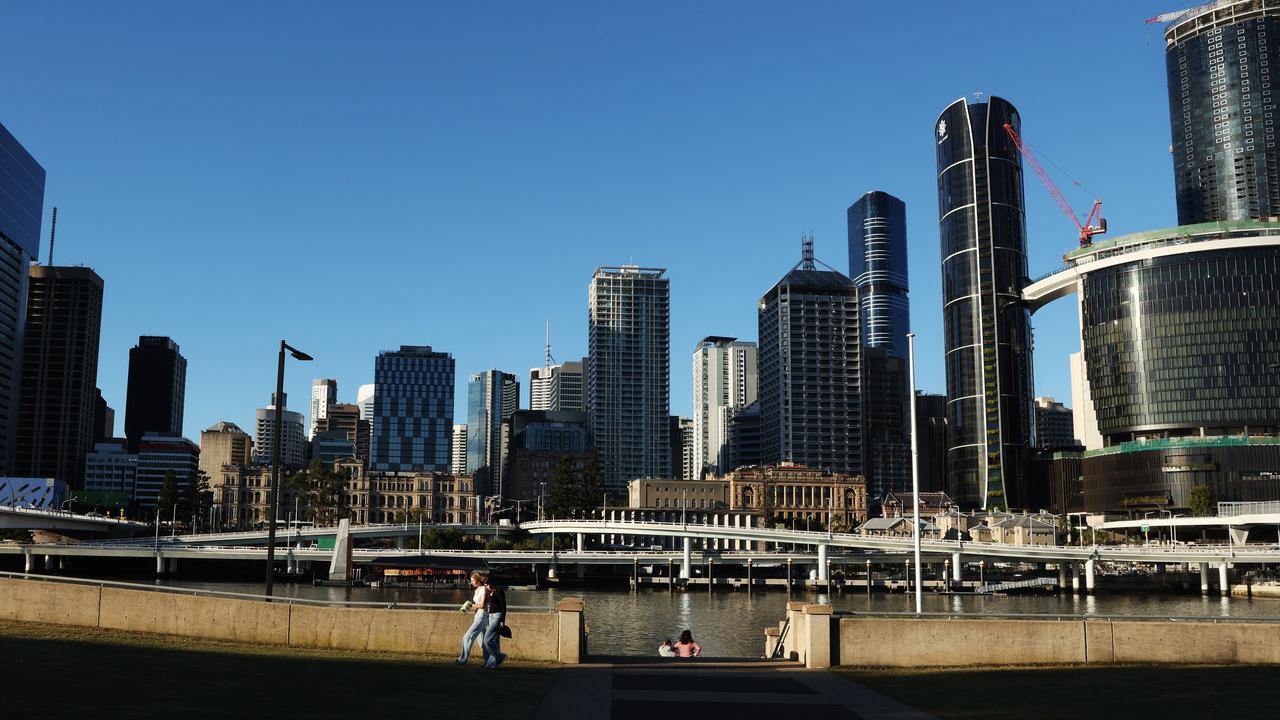More countries welcoming vaccinated travellers as Australians wait at home
More countries are reopening borders to vaccinated visitors but the ongoing travel ban in Australia means we won’t be able to take advantage.
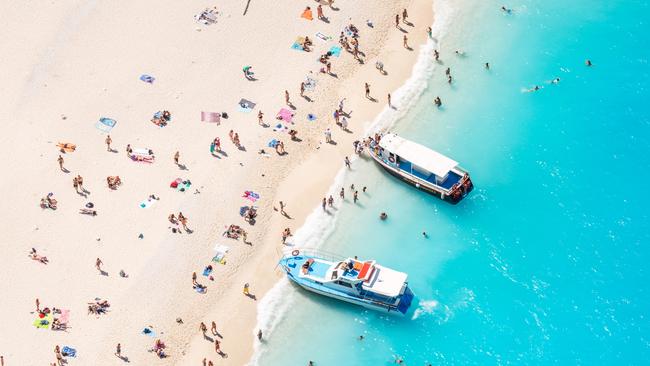
Business
Don't miss out on the headlines from Business. Followed categories will be added to My News.
The number of countries opening their borders to vaccinated travellers is growing, prompting further calls from airlines for Australia to develop a concrete plan to reopen.
More than 20 countries have wholly or partially lifted restrictions for vaccinated travellers, including Germany, Poland, Portugal, Greece, Korea, Iceland, Israel, the Maldives and Estonia.
Other countries, such as the UK, have implemented a “traffic light” system, with Australians among those able to visit without quarantining. Singapore is granting air travel passes for short-term visitors from countries including Australia.
But the ongoing travel ban on Australians means the closest most will get to an international flight this year is boarding a Qantas 787-9 operating on transcontinental routes.
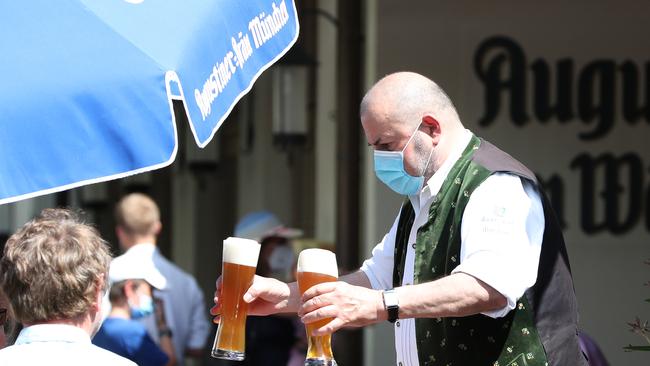
Any Australians seeking to travel overseas must apply for an exemption from the current travel ban from the Department of Home Affairs, and face two-weeks mandatory hotel quarantine on return.
Valid reasons for travel overseas include business, urgent medical treatment not available in Australia, compelling or compassionate grounds, the provision of aid, or travel in the national interest.
The International Air Transport Association has applauded countries making “evidence-based decisions” to open borders to vaccinated travellers, and warned others risked being left behind.
“A gap is opening up between countries responding to scientific evidence, and those exhibiting a lack of preparation or excessive caution in reopening borders,” said IATA director general Willie Walsh.
“Countries that seize the opportunity offered by the increasing numbers of vaccinated travellers can protect their populations and reap an economic reward.”
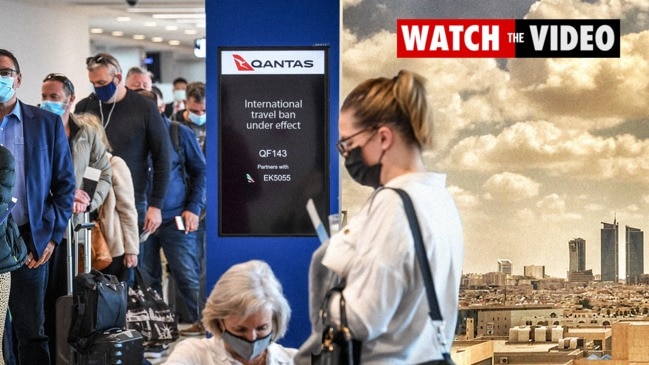
His views were echoed by the Board of Airline Representatives of Australia, which counts Qantas, Qatar, Emirates, United and Singapore Airlines among its members.
BARA executive director Barry Abrams said the federal government was already missing out on $1.3 billion a year from the passenger movement charge, and faced further costs from the ongoing support to airlines for air navigation and weather services.
“International airlines have been clear that the decision rests solely with governments as to when to ease international travel restrictions,” said Mr Abrams.
“BARA does note a number of health professionals have now stated it’s time for Australia to begin the planning and work to reconnect Australia. But this raises the issue of whether Australia is willing to accept some level of risk from Covid-19, especially if there is widespread vaccination across the community.”
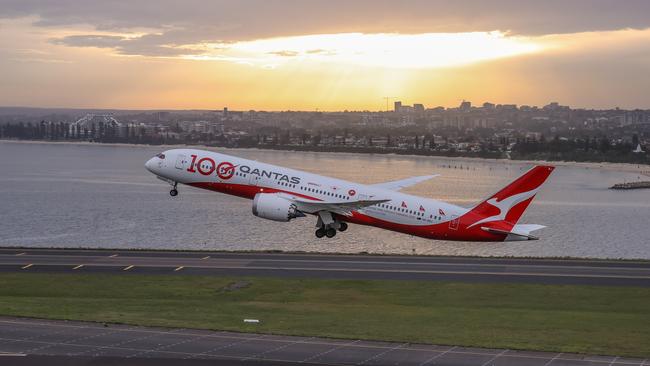
New international airline data from the Bureau of Infrastructure, Transport and Regional Economics showed the average load factor on flights in and out of Australia in March, slumped to 15.5 per cent, compared to 61.1 per cent a year ago.
Mr Abrams said the commercial viability of the small network of international flights continuing to operate to Australia, was increasingly dependent on airfreight.
In the ongoing absence of significant international flying beyond the trans-Tasman bubble, Qantas is using more of its wide-body fleet on domestic routes.
People flying between the east coast capitals and Perth or Darwin can expect to board a Boeing 787-9 or A330, providing the closest thing to an international flying experience in over a year.
The airline has also announced seven new domestic routes, including from Townsville to Adelaide, Melbourne or Sydney, Adelaide to Cairns or Hobart, Sydney to Uluru and Perth to the Gold Coast, with most to begin in August or September.
Five of the routes will be operated by 94-seat Embraer E190 jets as part of QantasLink’s partnership with Alliance Aviation.
More Coverage
Originally published as More countries welcoming vaccinated travellers as Australians wait at home


